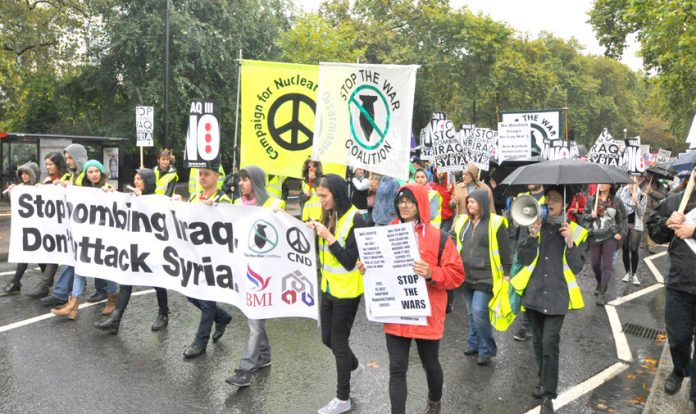
FORMER senior military commanders are runnng a campaign to strengthen the British army for a war in Syria.
The former head of the armed forces has called for the British army to increase in size, in order to tackle Islamic State (IS) and other Muslim extremists.
General Lord Richards said ‘thousands’ more soldiers were needed.
Lord Richards said the plan to cut the regular army and bolster numbers using reservists could be made to work – but added that we were ‘in a different era’ to just two or three years ago.
‘This needs to be put right quickly,’ he said. ‘My instinct is it can’t be and we need to go back to the drawing board and revise the size of the regular Army back up again.
‘If we are talking about a generational struggle, as I think the prime minister is, and he’s absolutely right to talk about, then we need an army that can sustain a demanding operation, not just in Syria and Iraq potentially, in a largely support role, but think of all the other places where Muslim extremism is causing havoc.’
He told the Andrew Marr Show he wanted the UK to play a role in the aerial campaign over Syria.
‘But air power alone will not win a campaign like this. It isn’t actually a counter-terrorist operation, this is a conventional enemy.’
The UK will either have to put ‘boots on the ground at some point’ or ‘very energetically and aggressively train up those who will do that with us and for us’.
He added: ‘My worry at the moment is that the scale of the challenge isn’t being met by the right scale of response. I am worried that without more intensive use of Western boots on the ground in a support role then we won’t do it in the time we need to get on and do this in.’
Meanwhile, the former head of the British army, Lord Dannatt, told the Sunday Telegraph, ‘It is completely unacceptable that some individuals in Qatar, Saudi Arabia and elsewhere see advantage in channelling large sums of money to the so-called Islamic State.’
Former defence secretary Liam Fox also told the newspaper: ‘ISIL is well-funded. Money has been flowing from rich individuals in the Gulf states, if not their governments, to finance them and their Sunni allies in their battle against the Assad regime.’